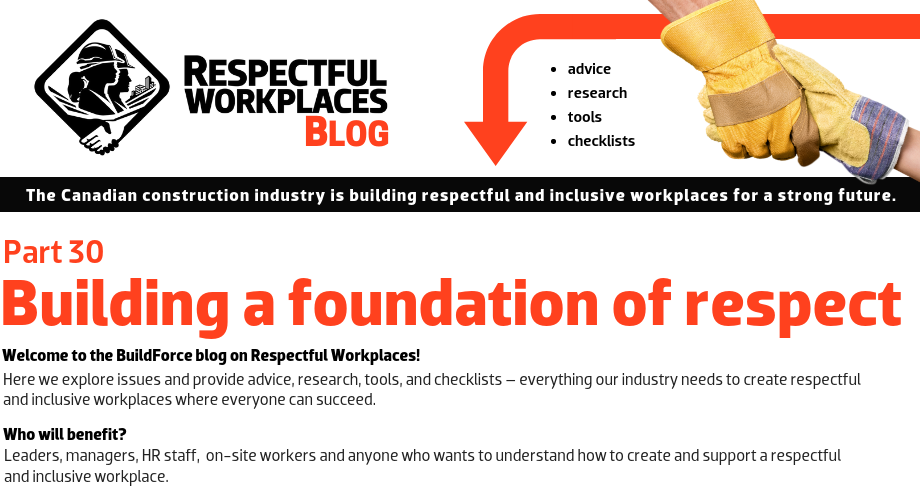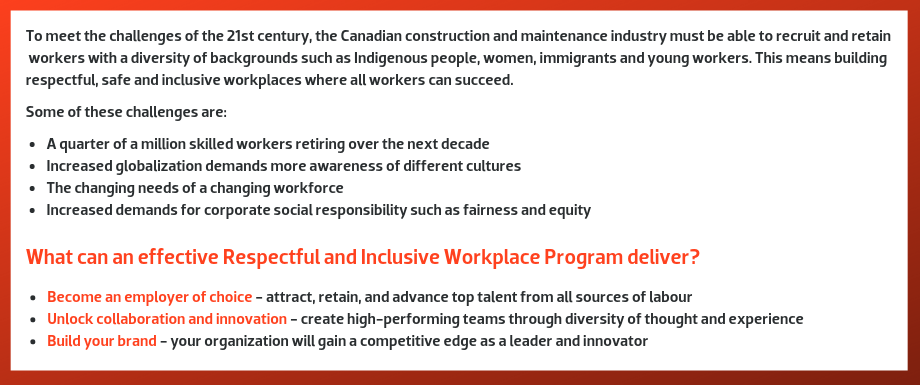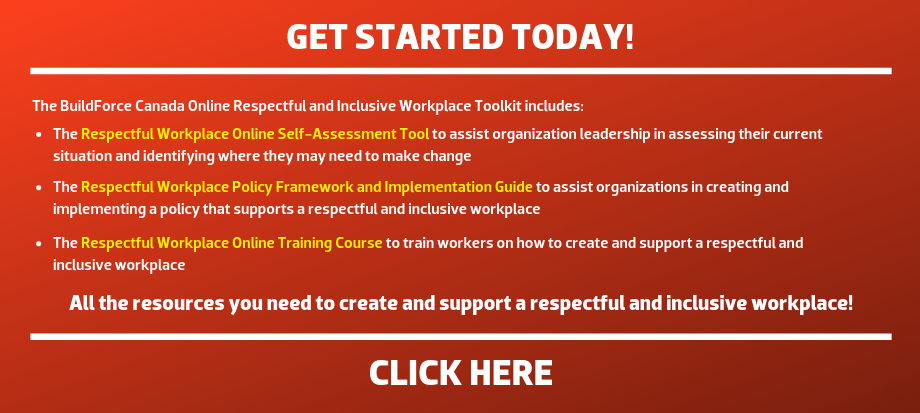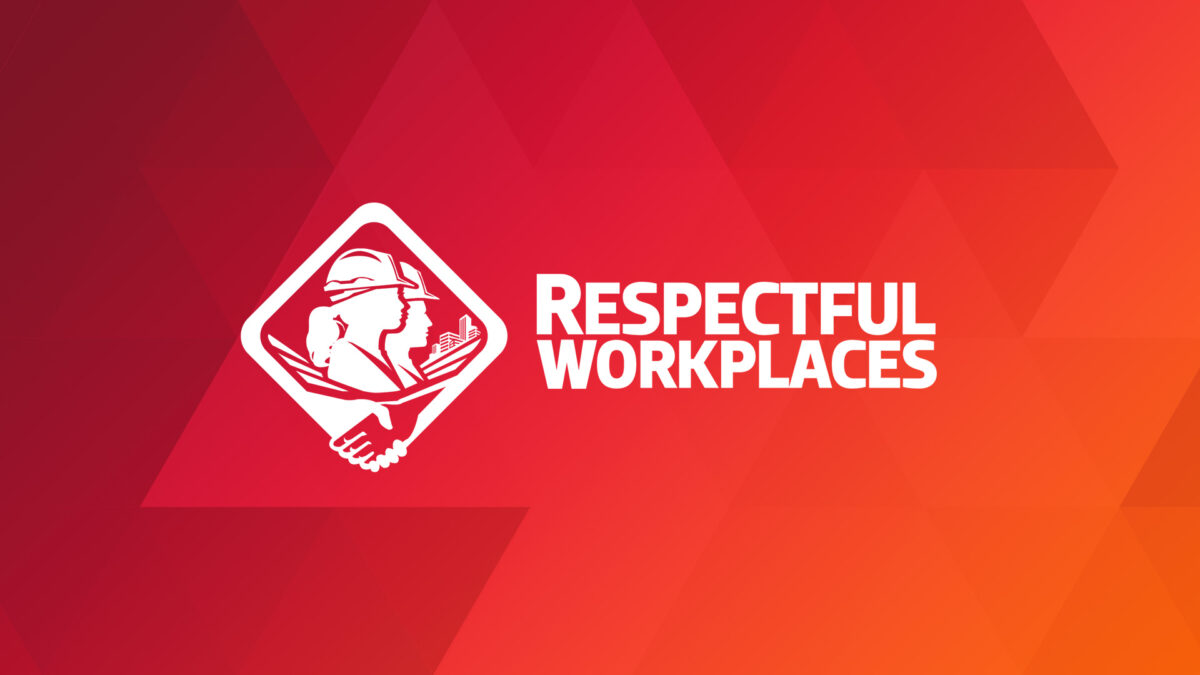
(Each month our feature question explores the content and use of the BuildForce Canada Respectful Workplace Policy Framework and Implementation Guide. This tool is a free template designed to assist organizations in creating and implementing policies that support a respectful and inclusive workplace. This tool is one of three in the BuildForce Canada Respectful and Inclusive Workplace Toolkit.)
Does your organization assign specific employees to be responsible for the effective implementation of its respectful workplace policy?
![Did you know? A respectful workplace policy will be more successful when specific employees and/or committees are assigned responsibility for its implementation. [photo of 2 young women and a young man holding paperwork as part of a committee] Download the free Respectful Workplace Policy Framework Implementation Guide at dev-bf-hub.pantheonsite.io/respect.](https://www.buildforce.ca/wp-content/uploads/2024/03/RW_blog_30_DYK_1.png)
In a major study that examined various strategies for increasing the representation of people with different genders, backgrounds, and circumstances in management, researchers found that establishing structures of responsibility for respect and inclusion was the most effective. This included creating a plan and establishing employee positions and/or committees responsible for the plan.
Although methods such as awareness training, networking, and mentoring were moderately effective in specific situations, they were more effective when there were responsibility structures to support these efforts.
The BuildForce Respectful Workplace Policy Framework Implementation Guide helps to increase the effectiveness of respectful and inclusive workplace efforts by recommending the development of “go-to-people” who are trained and trusted individuals to champion respectful and inclusive workplaces and to support the Respectful Workplace Policy Framework.
“Go-to-people” are:
- employees who take on this role in addition to their regular position or who are hired specifically for this role
- recruited based on their skills and experience related to building a respectful and inclusive workplace
- existing employees who take on the role who are given training in order to fulfil their duties
Their duties include:
- answering questions about the Respectful Workplace Policy Framework
- receiving and addressing complaints made under the framework and related policies
- making recommendations to management for improving its respectful and inclusive efforts gained from their experience in the role
For more info:
- Alexandra Kalev and Frank Dobbin. Best Practices of Best Guesses? Assessing the Efficacy of Corporate Affirmative Action and Diversity Policies. American Sociological Review, 2006, Vol. 71 (August: 589-617).







This project has been funded by Status of Women Canada.

Respectful and Inclusive Workplaces

